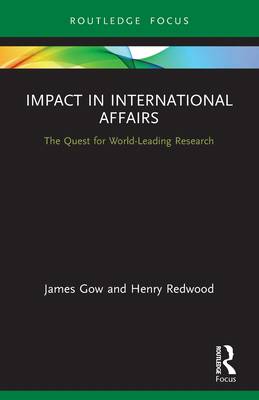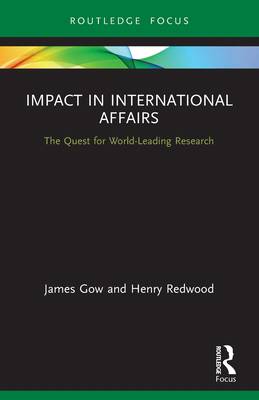
- Retrait gratuit dans votre magasin Club
- 7.000.000 titres dans notre catalogue
- Payer en toute sécurité
- Toujours un magasin près de chez vous
- Retrait gratuit dans votre magasin Club
- 7.000.0000 titres dans notre catalogue
- Payer en toute sécurité
- Toujours un magasin près de chez vous
Description
This book examines how and to what extent academic research in politics and international studies has had 'impact' -- in doing so, it also considers what might characterise 'world-leading' research impact.
International Relations was always meant to have impact - it was intended to make a difference in the world, when the subject was formally founded to understand and prevent war in 1919. This volume addresses the concept of 'impact' and offers a typology of the term -- instrumental, conceptual, capacity building and procedural. The authors examine 111 impact case studies in the UK Research Excellence Framework (2014) that were classified as having achieved the highest level of evaluation, and they identify eight characteristics that mark 'world-leading' impact. The book concludes that process and public and media engagement are previously underestimated aspects of impact in official approaches. It further demonstrates that achieving the top levels of impact in international relations is possible, but that factors such as the nature of the subject, the approach of researchers and mean-spiritedness in the peer review process inhibited this.
This book will be of much interest to students of politics and international studies, as well as educational research and policy makers, and anyone interested in, or working on, research impact.
Spécifications
Parties prenantes
- Auteur(s) :
- Editeur:
Contenu
- Nombre de pages :
- 138
- Langue:
- Anglais
- Collection :
Caractéristiques
- EAN:
- 9780367539429
- Date de parution :
- 01-08-22
- Format:
- Livre broché
- Format numérique:
- Trade paperback (VS)
- Dimensions :
- 140 mm x 216 mm
- Poids :
- 176 g

Les avis
Nous publions uniquement les avis qui respectent les conditions requises. Consultez nos conditions pour les avis.






